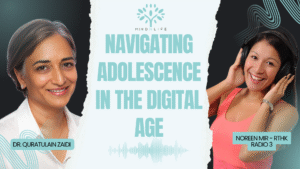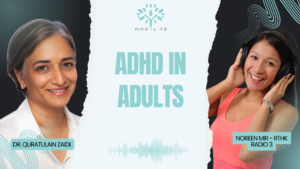Discussing the experience of isolation during grief, and how to help ourselves feel more connected.
Grief can be a very isolating experience. We may feel that no one understands the chaos our inner world has been thrown into. We may wake up in the morning consumed by grief, with little reprieve throughout the day, until we go to sleep still consumed by grief – and all this while the world keeps on turning as though nothing has happened. Our entire universe has shifted, and that can mean we no longer fit into our surroundings the way we used to.
We may disconnect from a world that does not make sense anymore and withdraw people whom we perceive to not understand our pain. Sometimes, the myriad of emotions are too difficult to explain or too overwhelming. We may feel that no one else knows our loved one the way we do, or is experiencing the loss the way we are, and so no one can share the grieving experience.
Here are some of the reasons that contribute to the isolating nature of grief:
- The loss of someone who knew us intimately, and whom we shared a large part of our lives with, may make us feel lost as no one else was that close.
- A stigmatized death, such as suicide or drug overdose, may make it difficult to speak about the deceased loved one with others.
- An emotionally complex relationship to the deceased can result in mixed emotions, including relief, anger, or guilt that we find difficult to disclose.
- A confidential connection, for example an affair partner or a therapy client, may make us feel like we have to hide our grief.
- An anticipated death, for example through illness, may make us think we should express less pain as we knew it was coming, which may not reflect how we feel.
- A sudden, traumatic loss, such as an accident or disaster, may leave us in shock and disconnected.
- Well-intentioned comments from others can feel patronizing, or dismissive of our pain and loss, making us feel unheard, misunderstood, or invalidated.
- We may see others express their grief differently and question why, or feel isolated or “wrong” in our grieving experience.
- When a loved one dies, we may lose our sense of identity – who we were specifically to that person – for example, when we lose a parent, partner, or child, which can make us feel confused and unanchored.
- When time has passed and we are still hurting, but others seem to have moved on, we may feel alone in our grief.
It is important to remember everyone’s grieving experience is unique and everyone grieves in different ways. There are ways in which we can make ourselves feel more connected and reduce the sense of isolation while we are grieving:
Reading materials – Reading something that resonates with us can make us feel understood and help bring forth further reflections. It can be powerful to read about grief, both first-hand accounts and psychological literature. Not only can it help us feel less alone, but we also get valuable insight into how others have experienced and overcome grief to lead fulfilled and meaningful lives. This may give us a sense of hope at various stages of our journey. For those who want to go beyond reading books, there are grief blogs and online sharing platforms that may be helpful.
Reaching out people we trust – Reaching out to people we trust, who will sit with us without us needing to explain how we feel, is effective in combating feelings of isolation. They may not understand exactly what we are going through, but they will be supportive, nurturing, and caring. Build your support community. Ask for what you need. You may need practical support, for example someone to help with the kids or cook a meal, or emotional support, such as someone to talk or cry with, or social support, like an exercise or movie buddy. Even if you feel like withdrawing, try to lean in and allow yourself to be taken care of. Now is the time.
Grief support groups – Grief support groups can be effective against isolation, especially if they are specific to certain circumstances of loss. For example, there are support groups for the loss of loved ones to specific illnesses, miscarriage & child loss, violent deaths, suicide, accidents and more. We can feel supported in a community of people who have gone through similar situations and whom we do not have to explain ourselves to. We may also feel more connected sharing our grief experience and seeing it resonate with others, and vice versa. For those who are not ready or able to connect in person, there are online communities that offer virtual support.
Article written by Dr Esslin Terrighena
If you have experienced loss and would like some guidance through the grieving process, please book a consultation by calling (852) 2521 4668 or email [email protected].







